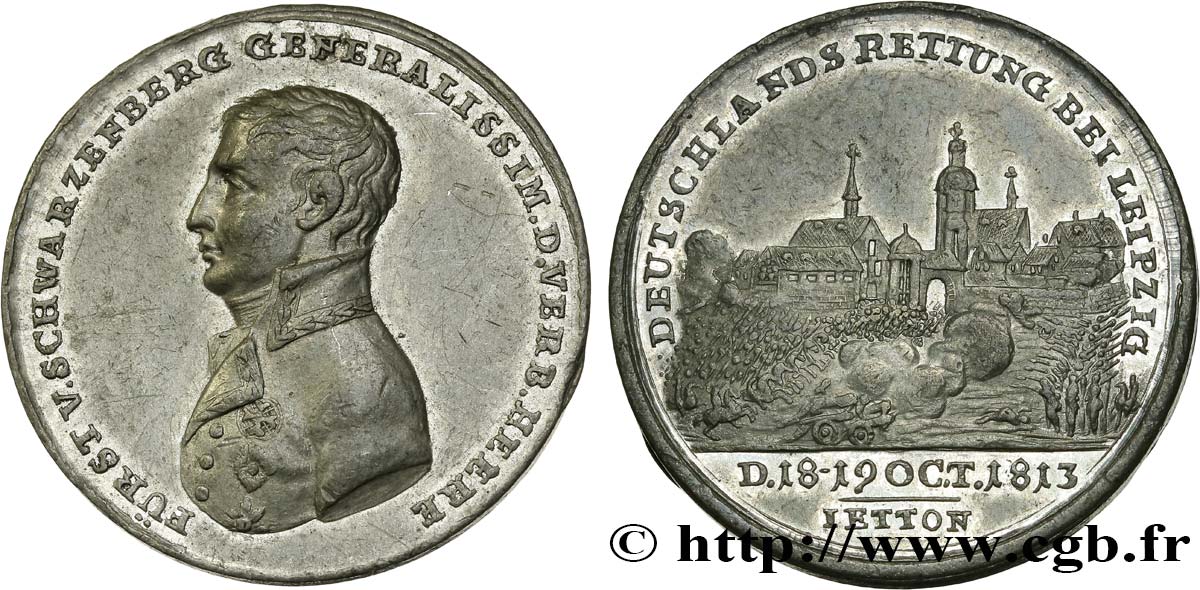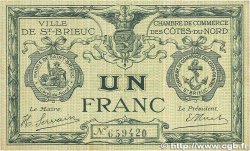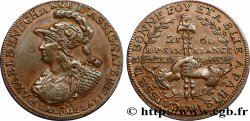E-auction 306-225270 - fme_367397 - NAPOLEON'S EMPIRE Médaille de la bataille de Leipzig
Чтобы принять участие в торгах, вы должны войти в систему и стать подтвержденным участником аукциона. Войдите, чтобы сделать ставку. Ваш аккаунт будет подтвержден в течение 48 часов. Не ждите до закрытия торгов, чтобы зарегистрироваться.Сделав ставку на данный товар, вы вступаете в юридическое соглашение на покупку выбранного товара и нажатием кнопки «Сделать ставку» подтверждаете принятие вами условий интернет-аукционов cgb.fr.
Ставка может бить сделана только в полном эквиваленте евро. Торги закроются согласно времени, указанному в описании товара, все ставки, сделанные после закрытия торгов, учитываться не будут. Не следует откладывать предложение вашей ставки до последнего момента, так как система может не успеть обработать вашу заявку, и ваша ставка не будет принята. Более детальную информацию вы найдёте здесь: FAQ по интернет-аукционам.
БЕСПЛАТНО.
БЕСПЛАТНО.
| Оценить : | 200 € |
| Цена : | 34 € |
| Максимальная предлагаемая цена : | 50 € |
| Конец торгов : | 25 February 2019 18:23:00 |
| Участников : | 8 Участников |
Тип Médaille de la bataille de Leipzig
Дата: 1813
Монетный двор / Город: Allemagne, Leipzig
Металл: tin
Диаметр: 34,5 mm
Ориентация осей монеты: 12 h.
Вес: 15 g.
Век: lisse
Комментарии о состоянии
Superbe médaille commémorant une victoire autrichienne. Médaille en étain en très bon état avec une agréable patine de collection
Лицевая сторона
Аверс: легенда: FÜRSTV. SCHWARZENBERG GENERALISSIM. D. VERB. HEERE.
Аверс: описание: Buste à gauche du prince Charles-Philippe de Schwarzenberg.
Обратная сторона
Реверс: легенда: DEUTSCHLANDS RETTUNG BEI LEIPZIG // D. 18-19 OCT. 1813 / IETTON.
Реверс: Описание: Scène de bataille avec la ville de Leipzig au second plan.
Комментарий
La bataille de Leipzig (16-19 octobre 1813), aussi appelée la bataille des Nations, fut la plus grande confrontation des guerres napoléoniennes, et fut une défaite subie par Napoléon Ier.
Karl Philipp, fürst zu Schwarzenberg ou le prince Charles-Philippe de Schwarzenberg, né le 18 avril 1771, Vienne et mort le 15 octobre 1820 à Leipzig, est un ministre d'État et de conférence et feldmaréchal autrichien, président du conseil suprême de la guerre, chevalier du Saint-Esprit et de la Toison d'or. Au mois d'août 1812, Napoléon lui confie le commandement de sa droite et du septième corps, avec lequel il dirige plusieurs opérations de cette campagne, remportant notamment des victoires sur les Russes lors de combats à Gorodetschna et Wolkowisk. Mais l'Autriche ayant retourné ses armes contre la France, il prend la tête de la Grande Armée de Bohême, participe aux batailles de Dresde, de Wachau et de Leipzig, puis entre en Suisse. Il opère sa jonction avec Blücher et, nommé généralissime des armées alliées, concourt au combat de Brienne, s'empare de Troyes et dirige les opérations de cette campagne qui finit par la reddition de Paris.
The Battle of Leipzig (16–19 October 1813), also known as the Battle of the Nations, was the largest confrontation of the Napoleonic Wars, and was a defeat suffered by Napoleon I. Karl Philipp, Fürst zu Schwarzenberg or Prince Charles-Philippe of Schwarzenberg, born on 18 April 1771 in Vienna and died on 15 October 1820 in Leipzig, was an Austrian Minister of State and Conference and Field Marshal, President of the Supreme War Council, Knight of the Holy Spirit and of the Golden Fleece. In August 1812, Napoleon entrusted him with command of his right and the Seventh Corps, with which he directed several operations of this campaign, notably winning victories over the Russians during the battles at Gorodetschna and Wolkowisk. But Austria having turned its weapons against France, he took command of the Grand Army of Bohemia, participated in the battles of Dresden, Wachau and Leipzig, then entered Switzerland. He made his junction with Blücher and, appointed generalissimo of the allied armies, participated in the battle of Brienne, seized Troyes and directed the operations of this campaign which ended with the surrender of Paris.
Karl Philipp, fürst zu Schwarzenberg ou le prince Charles-Philippe de Schwarzenberg, né le 18 avril 1771, Vienne et mort le 15 octobre 1820 à Leipzig, est un ministre d'État et de conférence et feldmaréchal autrichien, président du conseil suprême de la guerre, chevalier du Saint-Esprit et de la Toison d'or. Au mois d'août 1812, Napoléon lui confie le commandement de sa droite et du septième corps, avec lequel il dirige plusieurs opérations de cette campagne, remportant notamment des victoires sur les Russes lors de combats à Gorodetschna et Wolkowisk. Mais l'Autriche ayant retourné ses armes contre la France, il prend la tête de la Grande Armée de Bohême, participe aux batailles de Dresde, de Wachau et de Leipzig, puis entre en Suisse. Il opère sa jonction avec Blücher et, nommé généralissime des armées alliées, concourt au combat de Brienne, s'empare de Troyes et dirige les opérations de cette campagne qui finit par la reddition de Paris.
The Battle of Leipzig (16–19 October 1813), also known as the Battle of the Nations, was the largest confrontation of the Napoleonic Wars, and was a defeat suffered by Napoleon I. Karl Philipp, Fürst zu Schwarzenberg or Prince Charles-Philippe of Schwarzenberg, born on 18 April 1771 in Vienna and died on 15 October 1820 in Leipzig, was an Austrian Minister of State and Conference and Field Marshal, President of the Supreme War Council, Knight of the Holy Spirit and of the Golden Fleece. In August 1812, Napoleon entrusted him with command of his right and the Seventh Corps, with which he directed several operations of this campaign, notably winning victories over the Russians during the battles at Gorodetschna and Wolkowisk. But Austria having turned its weapons against France, he took command of the Grand Army of Bohemia, participated in the battles of Dresden, Wachau and Leipzig, then entered Switzerland. He made his junction with Blücher and, appointed generalissimo of the allied armies, participated in the battle of Brienne, seized Troyes and directed the operations of this campaign which ended with the surrender of Paris.








 Cообщить об ошибке
Cообщить об ошибке Распечатать страницу
Распечатать страницу Отправить мой выбор
Отправить мой выбор Задать вопрос
Задать вопрос Consign / sell
Consign / sell
 Информация
Информация












